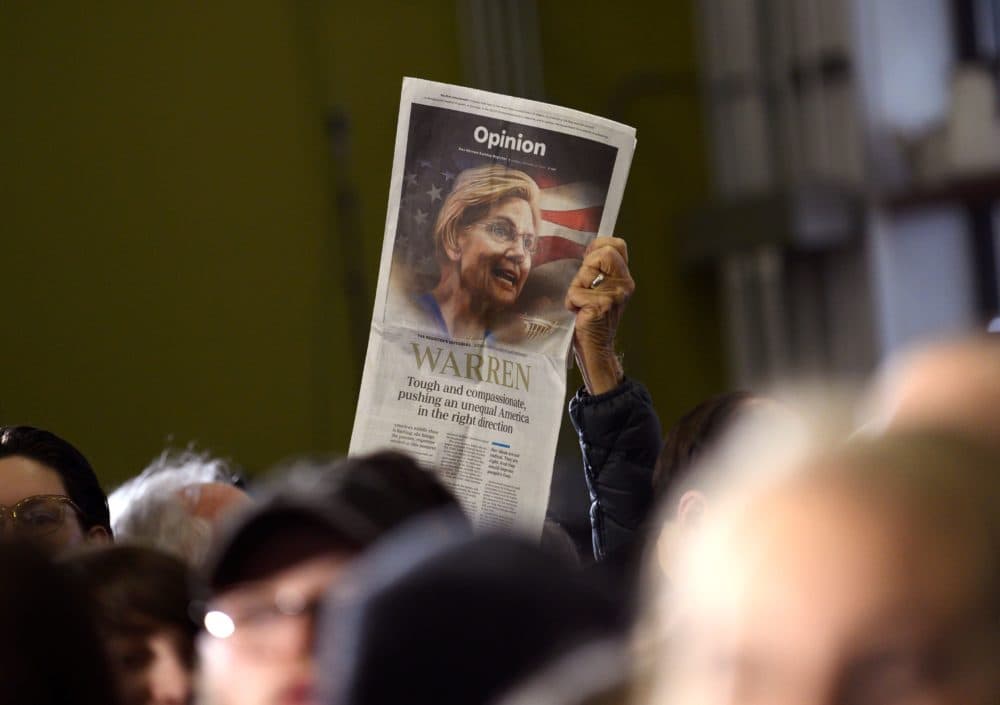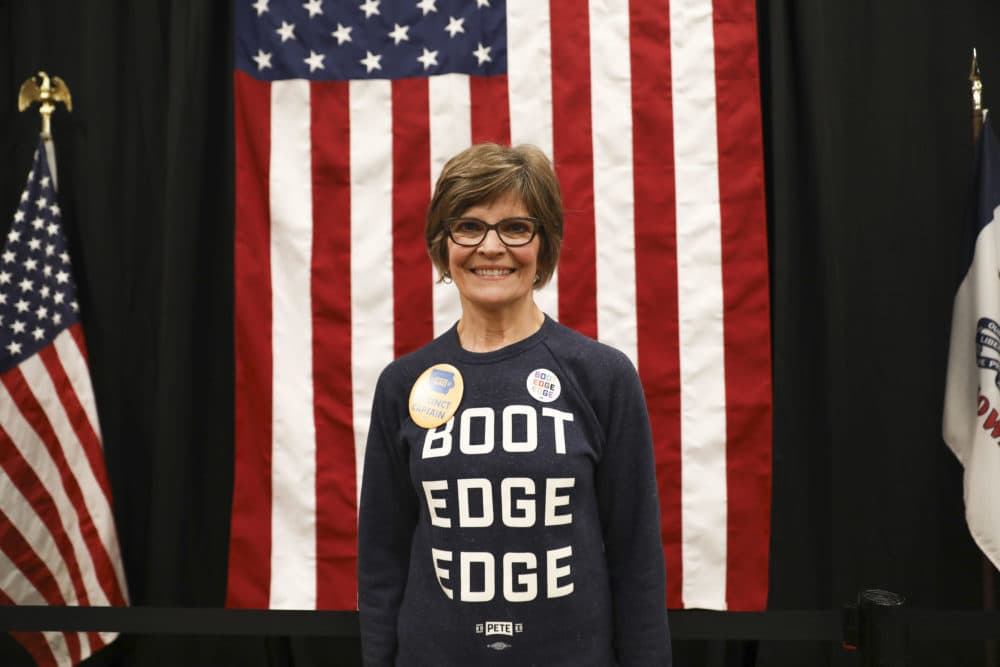Advertisement
Amid A Barrage Of Political Ads, Iowans Search For 'The Soul Of A Candidate'

Many voters in Iowa remain undecided just three days ahead of the state’s caucuses. But even if voters haven't made up their minds on which candidate to support, there's no way they could miss what’s coming on Feb. 3.
In addition to all the media coverage on television, talk radio and in print, campaigns and political groups have unleashed a tsunami of political advertising on Iowa this election cycle.
According to political ad trackers, Democratic candidates and outside groups have pumped more than $65 million into radio and TV ads in Iowa since the start of 2019, with more than half of that spending in the last two months.
“You're not targeting every Iowan,” says Donna Hoffman, who teaches political science at the University of Northern Iowa. “You're targeting Iowans who are going to go caucus.”
Candidates are trying different strategies for targeting voters in the state, she says. For example, she says Tom Steyer has bought ads on college campus newspaper stands and on Spotify.
Iowans may get sick of the ads, says UNI political science professor Christopher Larimer, but since caucusgoers are notoriously late deciders, campaigns hope the barrage of advertisements will help persuade them at the last minute.

Many Iowa voters say they do not rely on ads to stay informed. Terri Hale of Ankeny, Iowa, says she seeks out campaign news on NPR and in the pages of the Des Moines Register, The New York Times and The Washington Post.
Other voters stay up on the race by following social media.
“What that means is I follow different news agencies and then whatever shows up on my feed I also follow, too,” says 21-year-old Serena Qamhieh of Ames, Iowa.
Older voters also say they get a lot of news via social media. Tim Gossett says his Facebook feed “is constantly full of news.”
“I do like to hear a variety of things,” he says, “both conservative and liberal.”
Many voters also watch local TV news, which is the most trusted kind of media, according to the Poynter Media Trust Survey.
Ron Steele is an anchor and reporter at KWWL in Waterloo, Iowa, where he has covered local news and politics for 46 years.
Advertisement
Steele says his station feels a responsibility to inform his viewers, who play an important role in picking presidents.
“The way we portray it, we're not going to tell people how to vote. We're not going to tell people who to support,” he says. “We're just going to try to give them the information that's available out there so they can make an informed decision.”
He says viewers care most about “issue-oriented” coverage — so when he interviews a candidate, he strives to get an off-script version of who they are and what they believe.
“The Iowa caucuses, we feel, are more of that one-on-one personal connection where you can really kind of maybe understand the soul of the candidate,” Steele says. “We want to know who they are, who they really are on the inside, rather than the person who is just out there smiling and taking pictures.”
Local reporters are often more attuned to how Iowans view their role in the primary process, compared to the “aggressive” national press coverage of the state’s caucuses, Steele says.
“It's not about us as Iowans. It's about supporting the candidate that Iowans truly believe in and who's best qualified to represent that party as the eventual nominee,” Steele says. “It may seem like a little bit, but it's not a popularity contest.”
Even if it is not a popularity contest, as Steele says, the caucuses are a competition — one to see who can win the trust of Iowa voters, which is something that has taken Steele decades to earn. So when the ads disappear and the candidates move on to other states, he’ll still be covering Iowa.
This segment aired on January 31, 2020.

